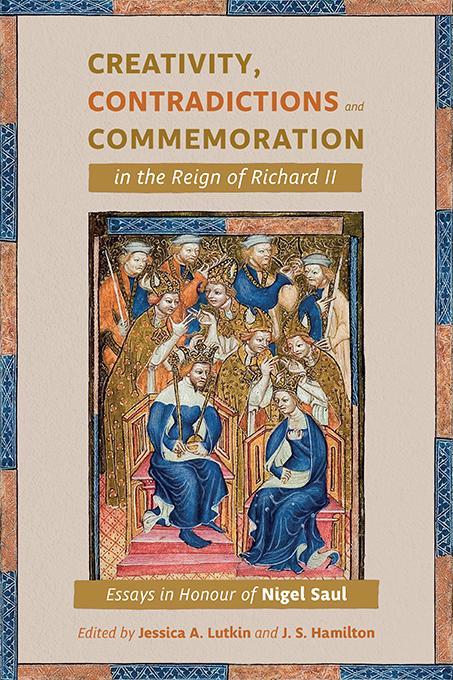 Creativity, Contradictions and Commemoration in the Reign of Richard II
Creativity, Contradictions and Commemoration in the Reign of Richard II 3 - The Authorship of the Continuation of the Eulogium Historiarum: A Reconsideration
Published online by Cambridge University Press: 26 May 2022
Summary
The continuation of the Eulogium Historiarum, otherwise known as the Continuatio, is an important source for often unique insights into the tumultuous events surrounding the deposition of Richard II and the ensuing reign of Henry IV. As well known as it is, however, the chronicle is fraught with problems, not the least of which concerns its authorship, a subject of considerable conjecture that has yet to be convincingly resolved. F. S. Haydon, the Continuatio's first editor, could only conclude that ‘nothing is known of its author; and I have been unable to discover anything which will lead to his identification … The personality of the writer is completely disguised.’ From Haydon's day to the present, the identity of the author has never been convincingly established. Rather, it has been taken for granted that the Continuatio was written by a single author, most likely a Franciscan friar affiliated with the Grey Friars at Canterbury, a view manifested in the latest edition of the Continuatio, which asserts that internal evidence ‘suggests that the author of the Continuatio was almost certainly a Franciscan, and probably based at the grey friars’ convent at Canterbury’.
However well entrenched, this conclusion is not above criticism; indeed, it has previously been challenged. During the 1930s, a contrarian point of view took issue with this interpretation, going so far as to propose that the chronicle was in reality a composite text written by an individual of importance around the turn of the fifteenth century. Acknowledging that ‘no mention is made of the name of the author or of the copyist’, Evan J. Jones has observed that ‘the value of this work would be greatly enhanced could but the name of the chronicler be established, especially as certain events are recorded by him, of which he is the sole authority’. For Jones, the composition of the Continuatio plays a major role in determining its authorship; its text consists of separate segments, one from 1390 to 1395, another from 1395 to 1405, which he labels ‘the main body of the work’, and yet another from 1405 to 1413. After close analysis, Jones asserts that
the chronicle is remarkably free from errors down to the entries under the year 1390; but for years 1390–95 there is considerable confusion in the record … the entries under the year 1390–95, and 1405–13, do not belong to the Continuatio proper.
- Type
- Chapter
- Information
- Creativity, Contradictions and Commemoration in the Reign of Richard IIEssays in Honour of Nigel Saul, pp. 53 - 72Publisher: Boydell & BrewerPrint publication year: 2022


